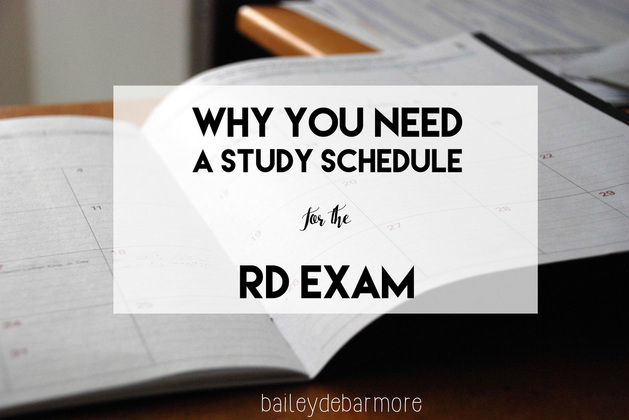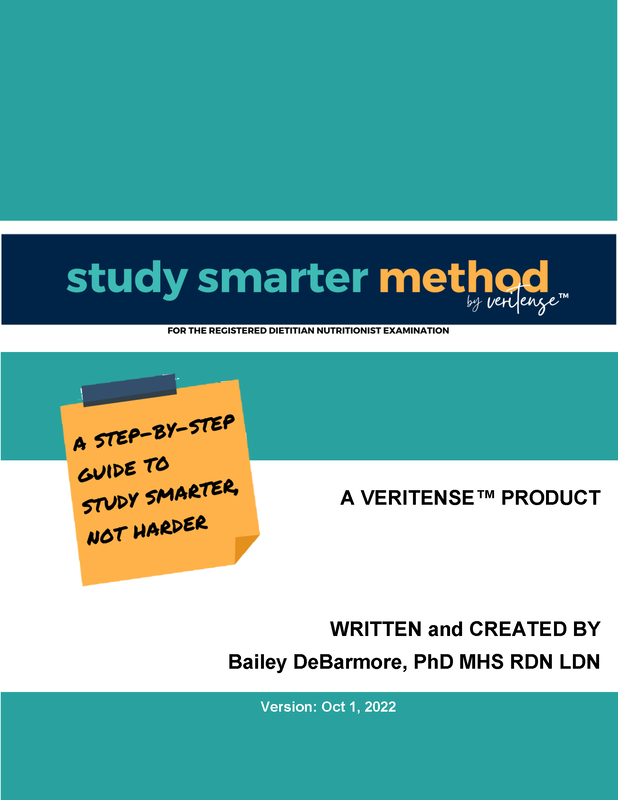|
For the most up-to-date information on the RD exam, including information on the 2022 exam update, and help with passing the exam, head over to my website www.studysmartermethod.com. Why You Should Make a Study Schedule: - If you are studying during the summer, it's easy to get distracted - If you have already started a job, you need to stay on track with the limited time you have for studying - There is a lot of information, which can be overwhelming - having a schedule can remind you that you've already prepared and calm you down - A study schedule breaks the material down into manageable parts - You can account for big events, like weddings and graduations, and give yourself time-off from studying The RD Exam has a lot of material on it, and unfortunately it's not all the practical things we learned in our dietetic internship. The food science, food service, and management domains can seem daunting, but if you plan when you're going to study what, you'll have something to fall back on when you feel overwhelmed. Creating a study plan is a key step in using The Study Smarter Method for the RD exam. What is the Study Smarter Method? It's the study method I created to help RD2Be's like you prep for the exam - whether you're studying for the 1st time or the 10th. You can learn more about the Study Smarter Method for the RD exam, download freebies for the RD exam (including information on how to set up your study calendar) at www.studysmartermethod.com. Questions? Feel free to leave a comment. I'm happy to help.
-Bailey
5 Comments
Sheila Mulhern
7/16/2014 12:28:33 pm
Thank you for providing the schedule checklist and calendar. I downloaded them both and they are very helpful!
Reply
Crimson
1/18/2016 07:23:35 pm
Thank you so much for sharing the RD exam study checklist and study calendar! I am on my third attempt at passing the exam and feel this will help immensely!!
Reply
Tawanda
1/19/2017 08:30:58 am
Hey Crimson I know its a year late, but did you pass your exam yet?
Reply
Giovanna
6/21/2017 03:25:49 pm
Hello! I just wanted to thank you for providing the sheets for free! So many resources I've found offer things for a price and with the expense of the internship and review materials, I am so thankful to find something so helpful that's free! I have been struggling with getting myself to begin studying but I think now that I have a schedule, I will stick to it!
Reply
Victoria A Fabbo
4/3/2019 05:19:35 pm
Thank you, downloaded it going to start studying after graduation and was nervous on my schedule time.
Reply
Your comment will be posted after it is approved.
Leave a Reply. |
a blog about health, wellness, nutrition, and fitness from an epidemiologist / dietitian with personal trainer experience
Stay up to date on productivity tips and active learning techniques
Like what you read?
categories
All
|





_250px.png)



 RSS Feed
RSS Feed
